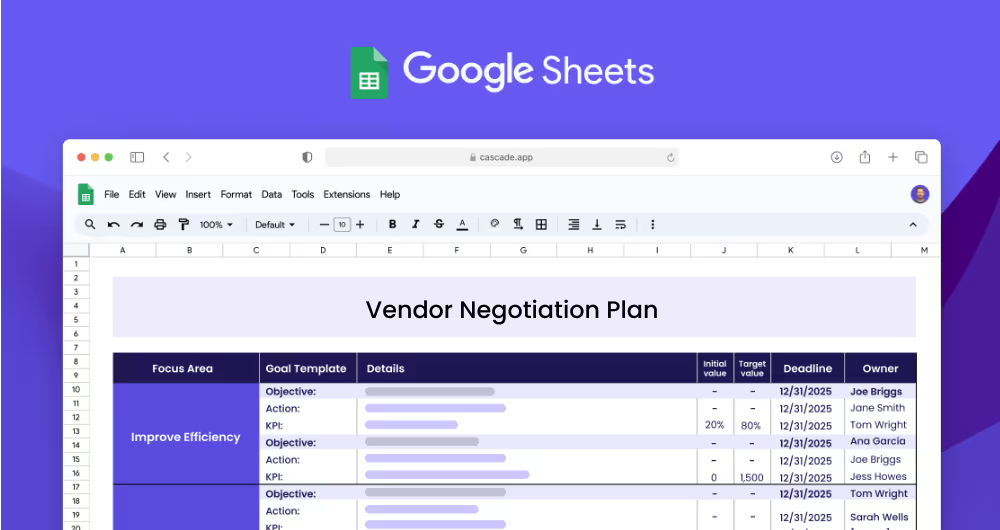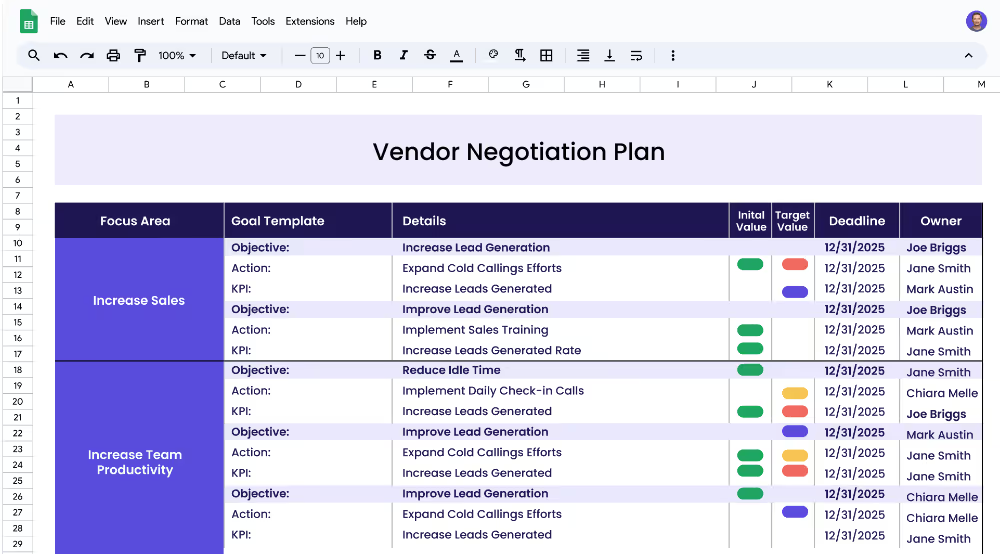A Vendor Negotiation Plan is a strategic plan that outlines a company's objectives for negotiating with vendors. It is designed to help identify, prioritize, and track the progress of negotiations with vendors. The plan should include information about the vendor, the objectives of the negotiations, and the tactics that will be used to achieve those objectives. The plan should also include measurable goals and timelines to ensure that negotiations are successful and that the desired outcomes are achieved.
Each focus area has its own objectives, projects, and KPIs to ensure that the strategy is comprehensive and effective.
The Vendor Negotiation Plan template is designed to help organizations of all sizes and industries create a plan to negotiate with vendors. It can be used by small businesses, large corporations, and any other organization that needs to negotiate with vendors. The template provides a framework to help organizations identify objectives, set measurable targets, and track progress during negotiations.
When creating a Vendor Negotiation Plan, it is important to identify the focus areas that need to be addressed. Focus areas are broad categories that define the goals and objectives of the negotiation. Examples of focus areas could include vendor negotiation, vendor management, and vendor performance. Each focus area should have its own objectives, actions, and measurable targets.
Once the focus areas have been identified, it is important to consider the objectives that need to be achieved. Objectives are specific goals that will be used to guide the negotiation process. Examples of objectives could include negotiating favorable terms with vendors, negotiating shorter payment terms, streamlining vendor onboarding processes, increasing vendor utilization, and improving vendor performance.
KPIs are measurable targets that will be used to track the progress of the negotiation process. Examples of KPIs could include decreasing the cost of goods, decreasing payment terms, decreasing onboarding duration, increasing vendor utilization, and increasing vendor performance scores. It is important to set KPIs that are realistic and achievable in order to measure success.
Once the objectives and KPIs have been identified, it is important to create related projects that will help achieve the desired outcomes. Examples of projects could include researching current vendor agreements, analyzing current payment terms, creating standardized onboarding checklists, and implementing vendor performance tracking. Each project should be designed to help achieve the desired KPIs.
If you’re ready to enhance your strategic efforts and see quicker, more reliable results, Cascade Strategy Execution Software is your next step. Unlike spreadsheets, which can become cumbersome and error-prone as strategies evolve, Cascade provides a centralized, agile platform with real-time updates and automated reporting. This enables robust collaboration and swift adaptation to changes, ensuring your team remains aligned and informed. Sign-up for free or book a demo with one of our strategy experts to propel your strategic plans to new heights.


